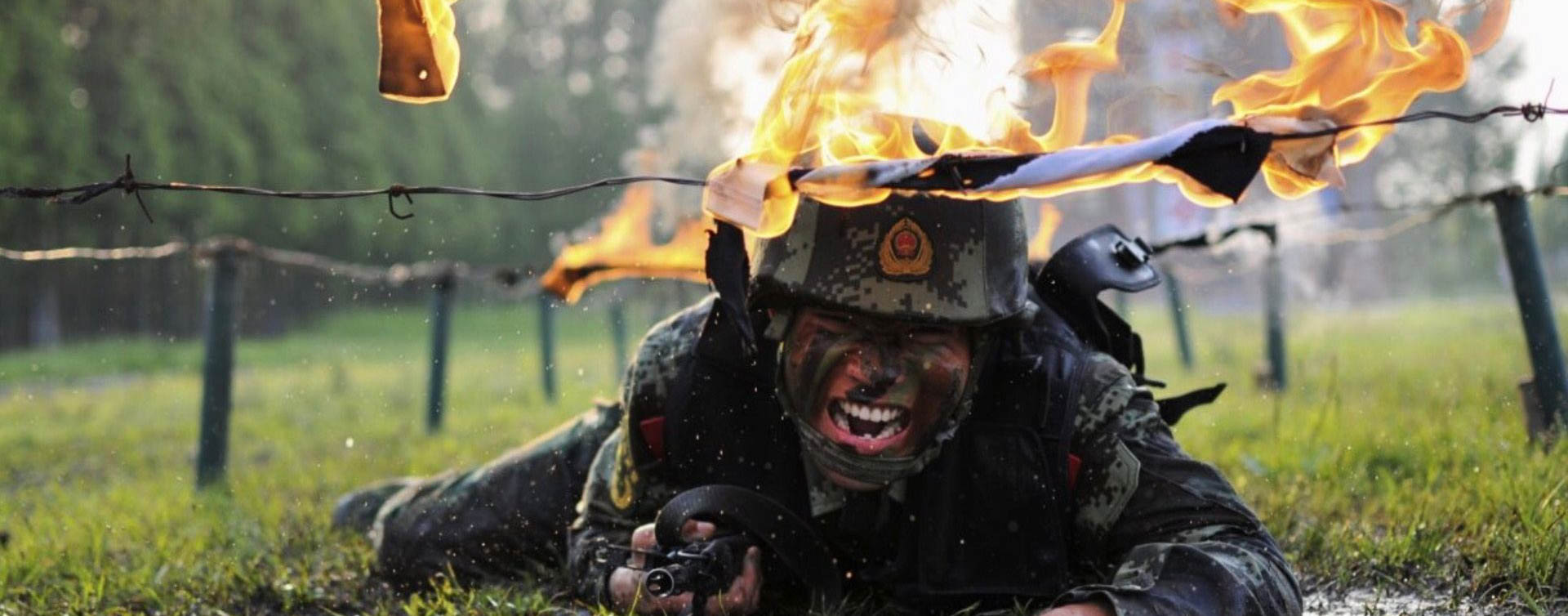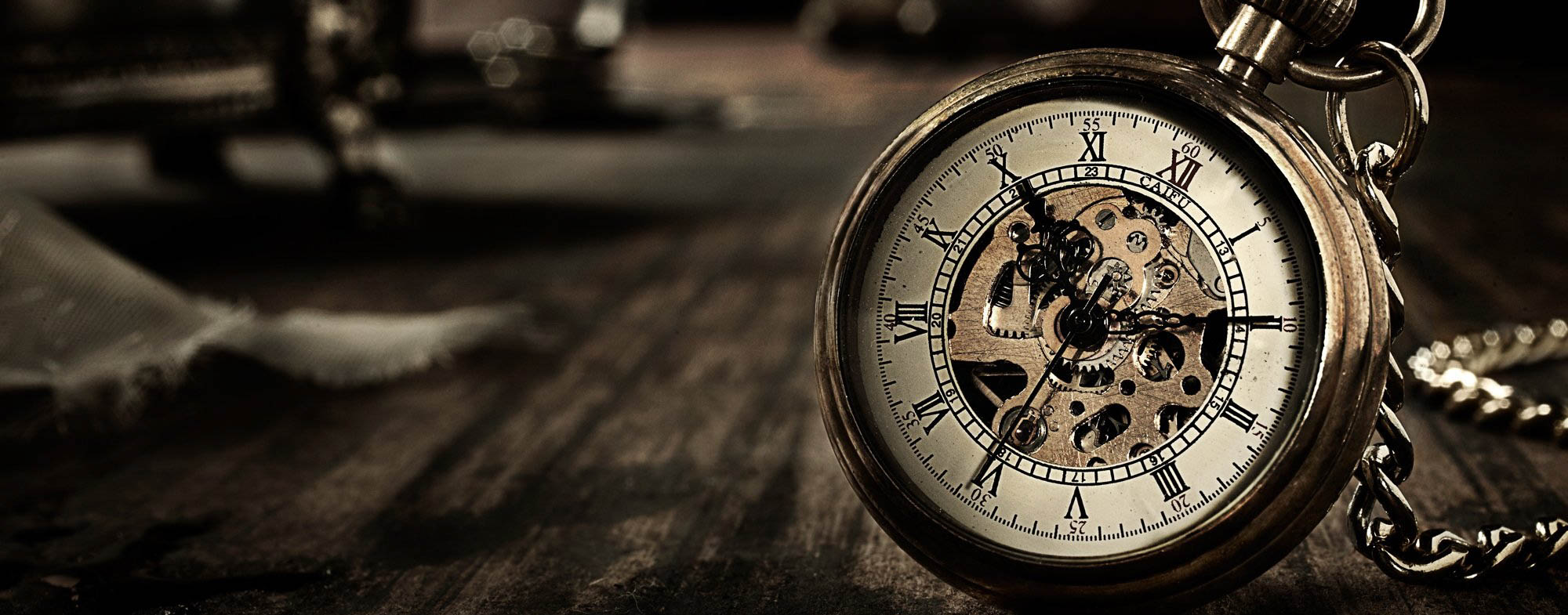The Ego and the Id(iot): Necessary Additions to the First Three Rules of Special Operations Forces
There are probably as many sets of ‘Rules for Special Operations’ as there are special operators, but one set most of us have probably heard goes like this:
Rule 1: Look cool
Rule 2: Know what you’re doing
Rule 3: If you don’t know what you’re doing, refer to Rule 1
As funny as these rules are meant to be, they point to an issue a lot of us ‘A’ types have. That we are not keen on asking for help, advice or assistance, and not ready to admit when we have no freaking clue what we’re doing.
I’m as guilty of this as anyone.
In the pre-GPS days, while driving with my wife from Camp Pendleton to Las Vegas, I took a shortcut I was sure would shave ten minutes off my quest to be on a barstool with a drink in one hand and slot machine lever in the other. I didn’t need to ask the gas station guy for directions because I knew where I was and where I needed to go. Plus, he didn't look like he knew what day it was. I got back in the car and my wife inquired, which went something like this:
“Did you ask him?”
“Uh? Yeah, we're good."
"That's not what I asked. Did you get directions? I don't think this looks right."
"No, we're good. Our turn is just about a mile up."
A mile up, I made our turn. I wasn’t concerned when the paved road turned to dirt, then sand. My wife, of course, made me turn around before putting it into 4WD. I still think we would have got there. Eventually.
This reluctance to admit to not knowing something or to recognize when we might be wrong is our ego.
Note: When I refer to Ego and Id in the title, I'm not using the Freudian definitions, because I don't know what the hell the Freudian definitions are. I'm just trying to be clever. When I say ego, I’m talking about the sense of self-importance that can prevent us from actually achieving our goals.
Our ego has a habit of getting in the way and can serve to make an idiot of us at times. This stereotypical guy trait can manifest even worse in special operations because we're problem solvers.
Directions? We don’t need no stinking directions.
The problem is that often, lack of ego is seen as lack of confidence. We need confidence. Confidence ensures our boss trusts us and that the people who work for us will follow our lead. Confidence is a sexy and critical trait we’re leaders or aspire to lead.
But it’s easy to allow a desire to look confident impact our competence. We can let ego get in the way of admitting we don’t know, and as my ancient Greek friend Epictetus once told me, “It is impossible for a man to learn what he thinks he already knows.”
I know that you've been told, "There's no such thing as a stupid question."
That, my friends, is untrue. There are metric-shit-tons of stupid questions, many of which I’ve fielded and asked myself.
But here's the thing. Stupid questions come from not listening in the first place.
Having said that, the stupidest question is always the one not asked. I don't know how many times I've nodded along in a conversation when I had no clue what was being discussed. This usually starts out innocently enough. I miss a bit of the conversation or don't understand something but instead of asking, I assume I’ll catch up. Maybe I didn't look like I didn't know, but I also didn't learn anything new or contribute.
I see it all the time when teaching classes. Twenty blank faces look back at me and shake their heads when I ask if there are any questions.
“Are you sure? No questions?”
Then finally, hopefully, from somewhere in the back a hand will slowly poke skyward.
"Yeah, hey what did you mean by (insert a basic fundamental from the first fifteen minutes of the class upon which the remaining forty-five have been based)?”
At that point, everyone leans in intently waiting for the answer because they had the same question themselves. And because they have been holding that question in for so long, now they’re trying to make sense of the entire class and they have missed a large chunk of what might have been lifesaving information.
I’ve been an instructor for a good long time and I think a hell of a lot more of the student who asks good questions, asks them early and pesters me to keep explaining until he or she understands. That makes teaching worthwhile.
So, I’m adding a few new rules:
Rule 4: Put Aside Rule 1 When Learning a New Skill

The other way that our damned ego can creep up on us is when we're learning a new skill, whether it be on the street, the range or in the gym. It’s easy to become more concerned with how we look to other guys doing something, how fast we can get out of the holster, how much weight we’ve got on the bar or if we're keeping pace with the guy beside us. When we focus, even a little bit, on what's going on outside of us and around us, we aren't able to give the task at hand our full attention. And that's fundamentally what it takes to improve.
My folksy farmer uncle Russ used to tell me, “If you chase two rabbits you won’t catch either one.”
I never had the heart to tell him I probably wasn’t going to catch any rabbits, because they’re fast as fuck, but anyway, you get the point.
It’s hard to put ego aside when we learn and work around our teammates. But watch a group of kids playing. There is no ego, only fun, which is why they learn shit so fast. The Japanese have a word for this: shoshin or “the beginner's mind.” What they mean by this is entering the learning of a new skill without preconceptions or expectations, forgetting Rule 1 for a while and allowing yourself the luxury of looking like an ass (or at least not worrying if you do) while you learn something or work to perfect a new skill or master an old one. In short, getting the fuck out of your own way so that you can improve.
Rule 5: Even a broken clock is right twice a day

Many moons ago, when I became the chief scout of a sniper platoon, I had a guy, Lance Corporal (later Private) Rodney, who was on the lower end of the intelligence spectrum. Rodney loved to talk and every so often on deployment when I’d see his team leader reaching for his Gerber MK II (presumably cut his own ears off), I would pull Rodney aside and listen to him for a while.
On the positive side, Rodney was too stupid to have an ego, so he would listen intently to what you had to say and try to take it onboard.
On the negative side, it was tough to get a word in edgewise, because Rodney loved to talk and was full of opinions which were almost always off-topic, irrelevant and often dangerous.
But on a few infrequent occasions, he would have an insight that actually made sense. I really hate to admit it, but I learned a thing or two from Rodney, because I listened and didn't ignore him because I felt superior.
Every day we’re presented with opportunities to learn new shit and get better at our profession, our passion or just life in general. Not all opportunities will be in the classroom. Many of them will come unexpectedly and may not be dressed like opportunities at all. But I’ve noticed that when I make a conscious effort to set my ego aside, let my guard down a little, and approach each new situation as a beginner with fresh eyes and a willingness to learn, I discover opportunities to improve all around.
Hell, it may be nothing more than a good example of a bad example, and I learn how not to do something, but in the end, I’m learning. Don't miss opportunities to learn by ignoring those situations.
Don’t get me wrong, Rules one through three are still important. But, that’s what ball caps and sunglasses are for. Anyone can get the cap right here, but the ability to grow is something that we all need to grow intentionally.
John Dailey is a retired Marine Special Operator who still works for Uncle Sugar. He is the editor of ‘The Raider Patch’ magazine and enjoys running ultra-marathons and drinking beer—not in that order. The views expressed in this article are those of the author and do not reflect the official policy or position of the United States Special Operations Command, the United States Marine Corps, the Department of the Navy, the Department of Defense, or the United States Government.





